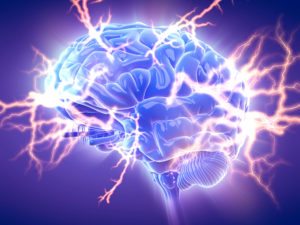Don’t Confuse Medical Ailments with Depression
A college coed’s fatigue and lack of concentration seem like depression but signal a thyroid imbalance that medication can correct.
A middle aged CEO has his first episode of depression. Apathetic, with loss of mental clarity, he was diagnosed with diabetes and high blood pressure.
An ex-football player complained of chronic pain and anxiety. He was deficient in vitamin B12, folate, and vitamin D. Turns out he was drinking excessively to treat his pain. The resultant vitamin deficiencies actually made his pain and irritability worse.
More than 100 medical disorders masquerade as mental illness. Medical conditions may cause 25% of mental health issues. With chronic inflammation being a common element in depression, diabetes, heart disease, anxiety, and thyroid disease, it is important to get laboratory tests.
Lab work (in addition to a thorough clinical interview) is essential to rule out medical conditions pretending to be depression. Weeks, months, even years of fruitless attempts at psychotherapy and antidepressants can be avoided. Looking for markers of inflammation, evaluating the thyroid gland, and checking for common vitamin deficiencies, it is possible to quickly hone in on medical causes.
Laboratory tests can be overwhelming in both quantity and complexity, so here is a list of essential labs. By no means a complete list, it is a significant start to making dramatic improvement in healing and living.
Thyroid Function Tests:
The thyroid is essential for the body’s metabolism, use of energy, and control of other hormones. Thyroid deficiencies are a leading cause of brain fog, lethargy, fatigue, depression, and cognitive impairments. Hashimoto’s is the most common hypothyroid illness seen in women. It is an autoimmune disease where the body attacks the thyroid gland leading to thyroid deficiency. Most physicians will merely get a thyroid screening test called the TSH or thyroid-stimulating hormone. However, too often hypothyroidism, particularly Hashimoto’s, is missed. Therefore, I recommend the following battery of thyroid function tests that together give a complete picture of the thyroid glands ability to help us maintain good cognitive health.
- TSH– thyroid stimulating hormone
- Free T4– inactive form of the thyroid hormone
- Free T3– active form of the thyroid hormone
- Reverse T3– is elevated with bodily stress as a means of slowing down and conserving energy for recovery from stress
- Thyroid peroxidase antibodies– elevated in Hashimoto’s
- Thyroglobulin antibodies– elevated in Hashimoto’s
Vitamin B12:
Vitamin B12 is a basic building block of life. It makes red blood cells, nerve cell lining, and aids in other brain functions. It protects the nervous system and regulates mood cycles. Deficiency leads to depression, memory loss, and confusion. In fact, 40% of the population is deficient because of poor diet, malabsorption, and diabetes drugs.

Highly Sensitive C-reactive protein:
C-reactive protein is elevated with general or systemic inflammation. Remember, inflammation is the primary cause of brain fog, depression, and anxiety. Cardiologists have long used highly sensitive C-reactive protein as a screening test for cardiovascular risk. C-reactive protein is also a useful marker for depression risk and brain inflammation.
Vitamin B9 (folate):
Folate is one of many essential vitamins needed for copying and synthesizing DNA, producing new cells, and supporting nerve and immune functions.
Homocysteine:
Homocysteine is an inflammatory protein metabolized by vitamin B12 and folic acid. When elevated, it is an indication that B12 is deficient. Cardiologists also use it as an indicator of cardiovascular risk. Homocysteine is an amino acid thought to damage the lining of your arteries and other cells of the body, including the brain.
Fasting glucose/fasting insulin/hemoglobin A1c:
Elevated blood sugar is one of the biggest risk factors for general inflammation leading to depression and brain fog. Hemoglobin A1c shows the average of blood sugar levels over the last 90 days (the lifespan of a red blood cell).
Serum 25-OH Vitamin D:
This is one of the most common vitamin deficiencies found in my medical practice. In fact, just yesterday I met with a profoundly depressed 20-year-old who had a vitamin D level of 7. The normal range is 50-80! Vitamin D3 lowers blood sugar, blood pressure, cholesterol and inflammation. It helps metabolize hormones, improves mood, and reduces the risk of many cancers, heart disease and autoimmune disease. It also boosts your immune system during the winter months. Vitamin D3 turns on genes that keep you from being inflamed.
ALT (alanine aminotransferase):
Nonalcoholic fatty liver disease is the most common cause of ALT elevation. Nonalcoholic fatty liver disease is seen with insulin resistance, obesity, and systemic inflammation. Elevated ALT is associated with depression and is used as an independent marker showing risk of developing depression.

Comprehensive metabolic profile:
A comprehensive metabolic profile is a screening test to show function of the liver, kidneys, electrolytes, and blood sugar. It is a quick and dirty overview of major body systems that ultimately affect the brain and cognition.
CBC with differential:
Anemia is a common feature of depression and fatigue. Vitamin B12, iron, and folate deficiencies are the most common causes of anemia. Additionally the CBC demonstrates evidence of infection and stress.
MTHFR:
The MTHFR tests for a defect in the genes that are responsible for methylation. Methylation is an essential biologic process that controls everything from your stress response and how your body makes energy from food, to your brain chemistry and detoxification. Those with an MTHFR mutation are at risk for poor enzyme efficiency. Consequently, folate and folic acid cannot be efficiently converted into their active form, known as 5-MTHF or L-methylfolate. Therefore those nutrients can’t perform one of their key functions: breaking down (recycling) Homocysteine. Homocysteine is naturally formed in the body, but gets broken down (recycled) by 5-MTHF, reducing the incidence of inflammation.
Magnesium (RBC):
Magnesium is a mineral responsible for many functions including energy production in the cells, reaction to stress, and “calming” of the brain and nervous system. Magnesium deficiencies are prevalent in depression, anxiety, and sleep issues.
Iron profile including serum ferritin:
Iron-deficiency anemia is caused by a lack of iron. Anemia is defined as a decrease in the number of red blood cells or the amount of hemoglobin in the blood. When anemia comes on slowly, the symptoms are often vague and may include feeling tired, weakness, shortness of breath or poor ability to exercise.
Do not try to self-diagnose using your blood test results. However, taking the initiative to order your own blood tests could save you money (especially if you do not have health insurance) and confirm a general, preliminary diagnosis, and save yourself some steps when you consult your doctor.
Stay tuned for further articles about fighting the root causes of depression and poor cognitive health. Next up:
- Anti-Inflammatory Diet 101
- Exercise: How to Get the Most Out of Your Moves
- Sleep Hygiene: Tips and Tricks for Sleeping Like a Babe
- Meditation: It’s Not Just For Levitating Monks
- Motivational Hurdles- Armed With All of This Data, Why Can’t I Commit?
Further Reading:
Comprehensive Metabolic Profile: https://goo.gl/HmyZB9
MTHFR: https://goo.gl/FmnpHe
Highly Sensitive C-Reactive Protein: https://goo.gl/EzXvGL
Homocysteine: https://goo.gl/VJ3LSL
Hemoglobin A1c: https://goo.gl/wRFQfH
Vitamin D3: https://goo.gl/2XGKZq
Vitamin B12 And Folate: https://goo.gl/6T89Hi
Thyroid Function Tests: https://goo.gl/2XUaRy
Cognition And Depression: https://goo.gl/uagvyp
Iron Deficiency and Cognition: https://goo.gl/kZpxB1

